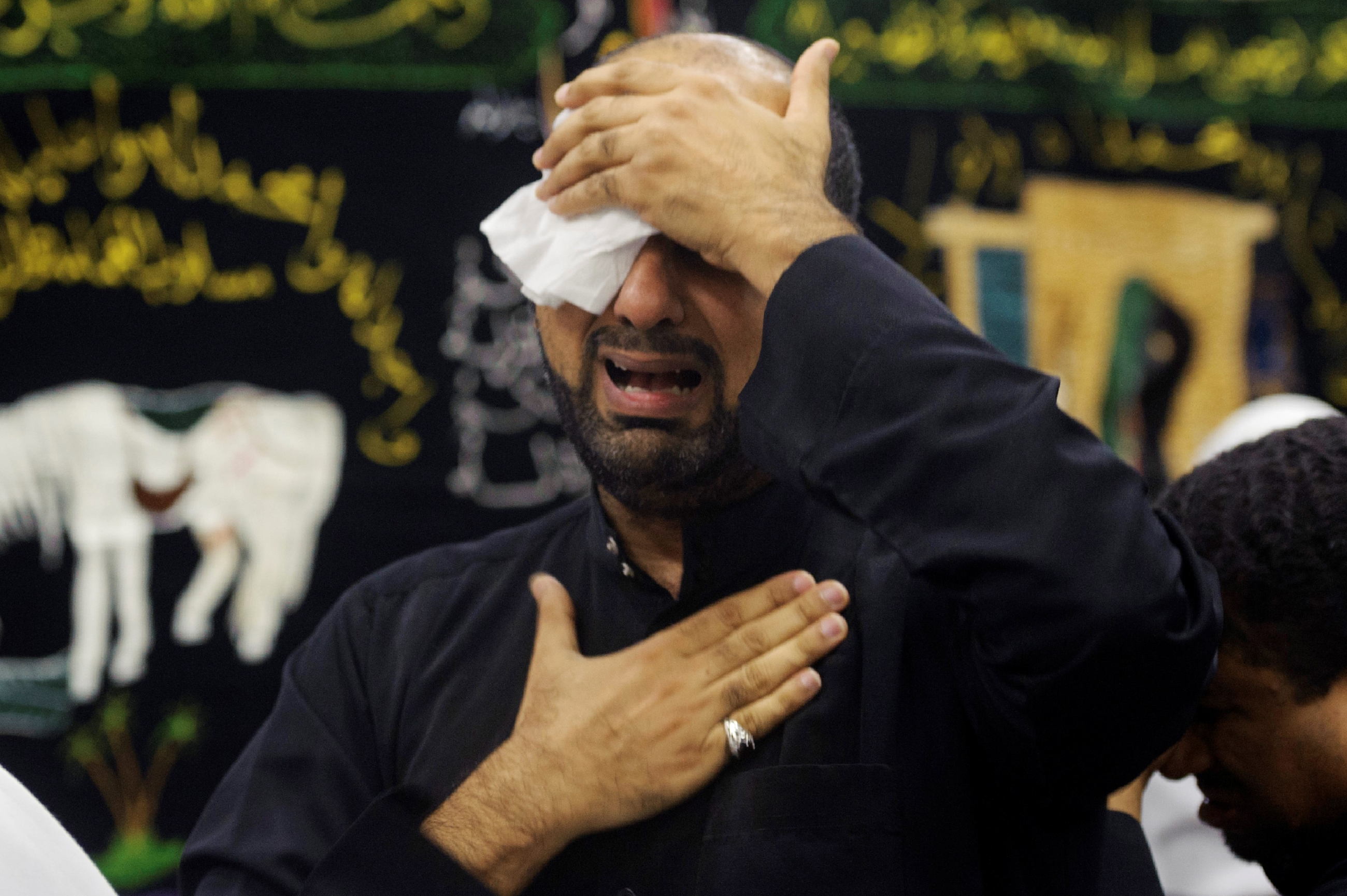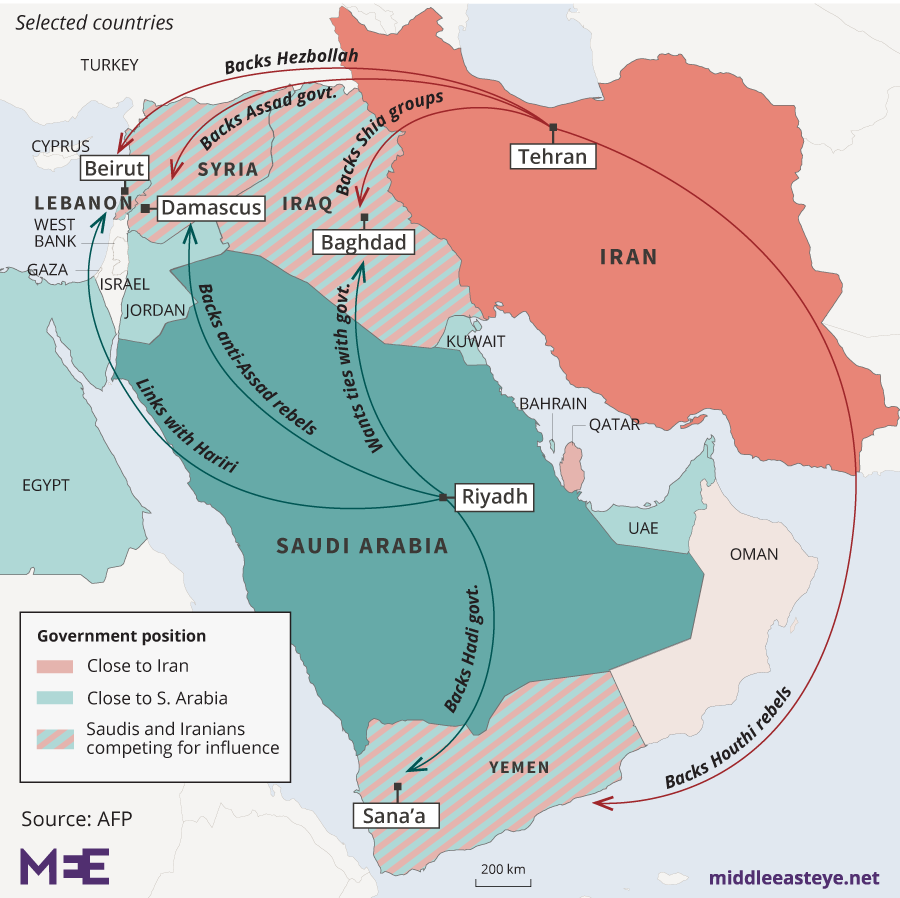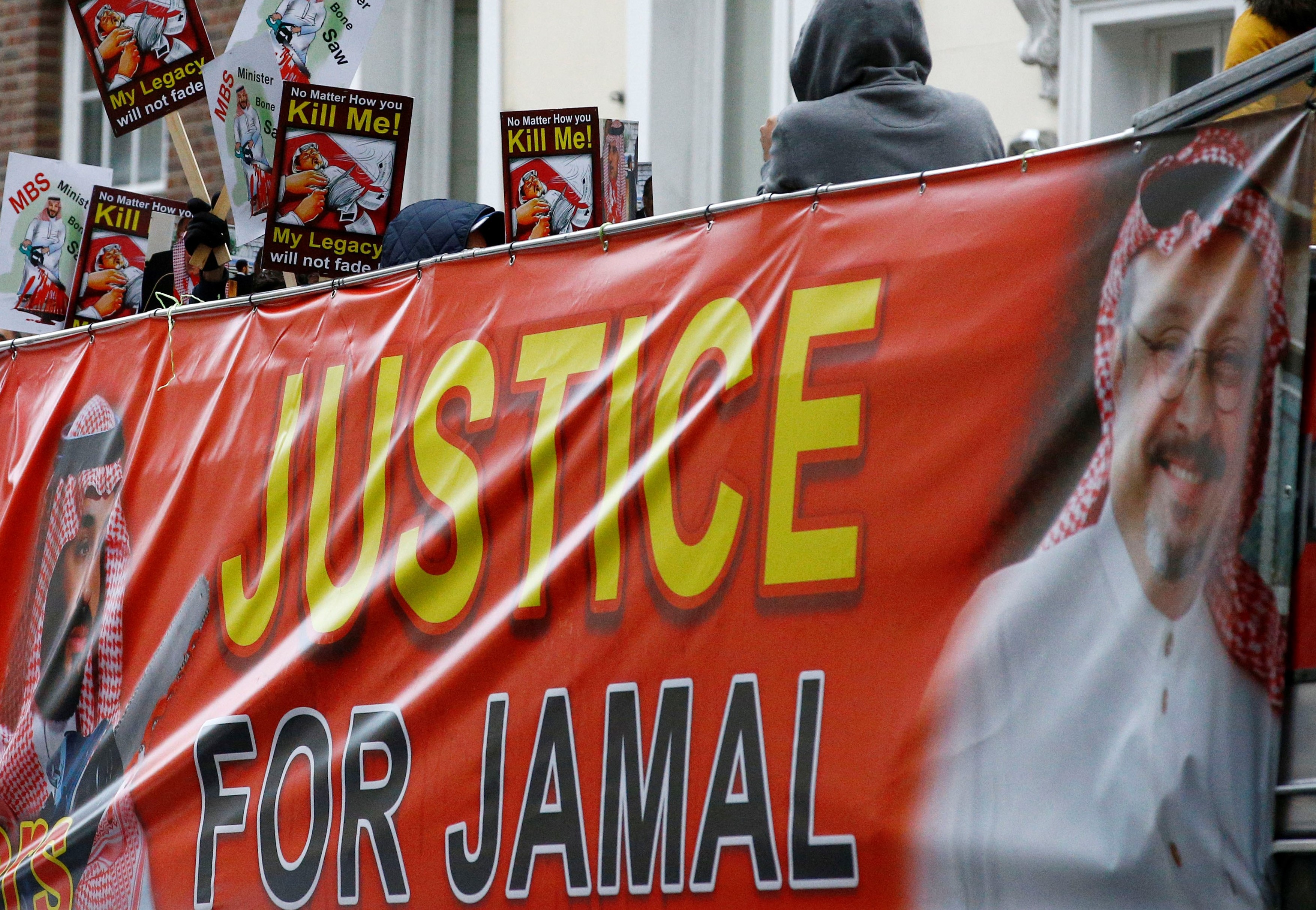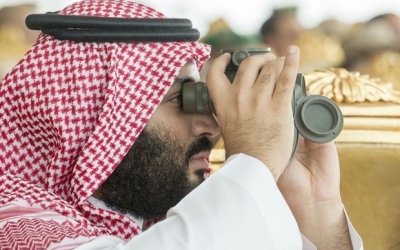Saudi Arabia executions: A cruel travesty of justice

On Tuesday, Saudi official sources announced the mass execution of 37 prisoners, including one rather abhorrent crucifixion, carried out after execution.
The prisoners were lumped together and charged with several ambiguous charges such as terrorism, conspiracy to undermine security, spying, spreading Shia Islam and murder. The crucified man was accused of murdering a woman and conspiring to murder another one.
At least 34 of the executed prisoners are Shia activists, professionals, religious scholars and a number of young men who were detained when they were minors
But please don't ask yourself whether the 15 murderers who plotted and killed journalist Jamal Khashoggi at the Saudi consulate in Istanbul last October were amongst them.
None of those has been named or charged openly in a Saudi court and will most likely never be executed - if found guilty at all.
The Saudi Press Agency announced: "The death penalty was implemented on a number of criminals for adopting extremist terrorist ideologies and forming terrorist cells to corrupt and disrupt security as well as spreading chaos and provoking sectarian strife."
Stay informed with MEE's newsletters
Sign up to get the latest alerts, insights and analysis, starting with Turkey Unpacked
According to Amnesty International, at least 104 people have been executed in Saudi Arabia so far this year. In 2018, the state carried out 149 executions.
Travesty of justice
At least 34 of the executed prisoners were Shia activists, professionals, religious scholars and a number of young men who were detained when they were minors. This amounts to a brutal attack on Saudi Arabia's Shia.
The community must be in shock and mourning its loss. Many of the young Shia prisoners were detained as early as 2011, when many in the Eastern Province staged an uprising demanding the release of their political prisoners.
This act of mass punishment is a travesty of justice for many reasons.
First, a political system that subjects the judiciary to its absolute power cannot be trusted to deliver real justice.
Secret trials undermine the credibility of the Saudi justice system. Furthermore, confessions under torture, a common practice in such high-profile executions, amount to nothing but injustice, yielding unreliable statements from prisoners, and are in stark violation of human rights.
But of course, the Saudi regime does not give great attention to such details and, without the regime being held accountable, no one can challenge the abysmal state of Saudi prisons and what goes on behind closed doors.
Furthermore, when we realise that lawyer Waleed Abual-Khair and woman's rights activist Lujain al-Hathloul, among hundreds of prisoners of conscience, are put on trial in terrorism courts although they are peaceful activists, we can conclude that in the eyes of the regime blowing up people is on par with writing an article, tweeting a message, or representing a political prisoner of conscience if one is a lawyer.
The T word
Second, lumping all executed prisoners under the charge of terrorism mitigates against any criticism of the government's decision, particularly of King Salman, who has to sign the death sentences before they are carried out.
In fact, any criticism of such a massacre, conducted behind closed doors and displayed to the public in the case of the crucifixion, faces a deluge of Saudi trolls justifying the executions on grounds of terrorism and even accusing the critic of sympathising with terrorism.
In such a situation, even Amnesty International and Human Rights Watch, which both reported on the executions and questioned the state terrorism narrative, face the allegation that they are sympathisers with terrorists.
In the unlikely situation that a Western government expresses doubt, concern or mild reservations about the large number of executions, the Saudis will revert to the justification that this is exactly what the West expects, namely an iron fist to end terrorism.
The Saudi regime thinks of itself as the vanguard against terrorism, as a participant in the "War on Terror" and the international coalition against the Islamic State. Mass executions of terrorists should be welcomed rather than questioned, it believes. Vague terrorism charges have truly become an umbrella under which an opaque judiciary and a hawkish regime silences dissent.
Containing Iran?
Finally, it is important to point out the political context of the recent executions. US President Donald Trump entrusted Saudi Arabia with the task of containing Iran, so in addition to its cherished role in fighting terrorism, the Saudi regime is considered in Washington an indispensable ally against the regime in Tehran.
The execution of Shia prisoners on this scale can be interpreted as part of "fighting Iran" in an obscure and convoluted way.
The real victims of the Saudi injustice on 23 April are Saudi Shia, who represent a minority on the edge
But Iran will not be affected by this mass murder. It can only condemn the execution of its co-religionists as it did when Sheikh Nimr al-Nimr was executed in 2016. The incident led to an attack on the Saudi embassy in Tehran and a serious deterioration in relations between the two countries.
However, the real victims of the Saudi injustice on 23 April are Saudi Shia, who represent a minority on the edge. Regardless of how much they show respect and endorsement of the Saudi regime, they seem to be always accused of loyalty to Iran.
Many exiled Shia activists returned to Saudi Arabia in the 1990s and continue to write about citizenship, inclusion, and rejection of sectarianism. They welcomed their inclusion in the National Dialogue under King Abdullah and the new development and construction projects in their areas under King Salman.
But alas, a shopping mall in Qatif decorated with newly planted trees and illuminated with blinding neon lights somehow fails to absorb the feeling of marginalisation, alienation and exclusion. It certainly did not lead to fair trials for the many executed Shia prisoners, many of whom were peaceful protesters calling for real respect of their rights.
The latest executions can be seen as a message to Iran, but in fact they are a blow to peaceful coexistence and harmony inside Saudi Arabia itself. The executions will certainly not put an end to the peaceful protest and activism of this community, which has been struggling for equality for over half a century.
Wholesale massacre
The death penalty is an abhorrent and counter-productive punishment and should be abolished both in democratic countries such as the USA and above all in autocratic regimes that use it to intimidate and frighten citizens.
Crucifixion is of course another method to spread fear, shock and demoralise people who have been deprived of the basic freedoms that many others enjoy.
Any call to abolish the death penalty in Saudi Arabia will be interpreted as undermining its commitment to "Islamic" justice and sharia law. But this is a mere justification for continuing to practice an abhorrent and disgusting punishment.
Surely Islamic scholars can argue the case for abolishing the death penalty, especially when it is deployed in a repressive regime like the Saudi one, with no transparent judiciary.
If Saudi Arabia is truly committed to Islamic justice, it can demonstrate this by bringing those accused of murdering Khashoggi to open court where independent observers can be present. So far its selective wholesale massacre like the one committed on 23 April falls short of demonstrating its Islamic credentials or authenticity.
It is time for both Saudis and the international community to take notice of the ease by which the regime in Riyadh can simply take the lives of its own citizens.
The views expressed in this article belong to the author and do not necessarily reflect the editorial policy of Middle East Eye.
Middle East Eye delivers independent and unrivalled coverage and analysis of the Middle East, North Africa and beyond. To learn more about republishing this content and the associated fees, please fill out this form. More about MEE can be found here.










